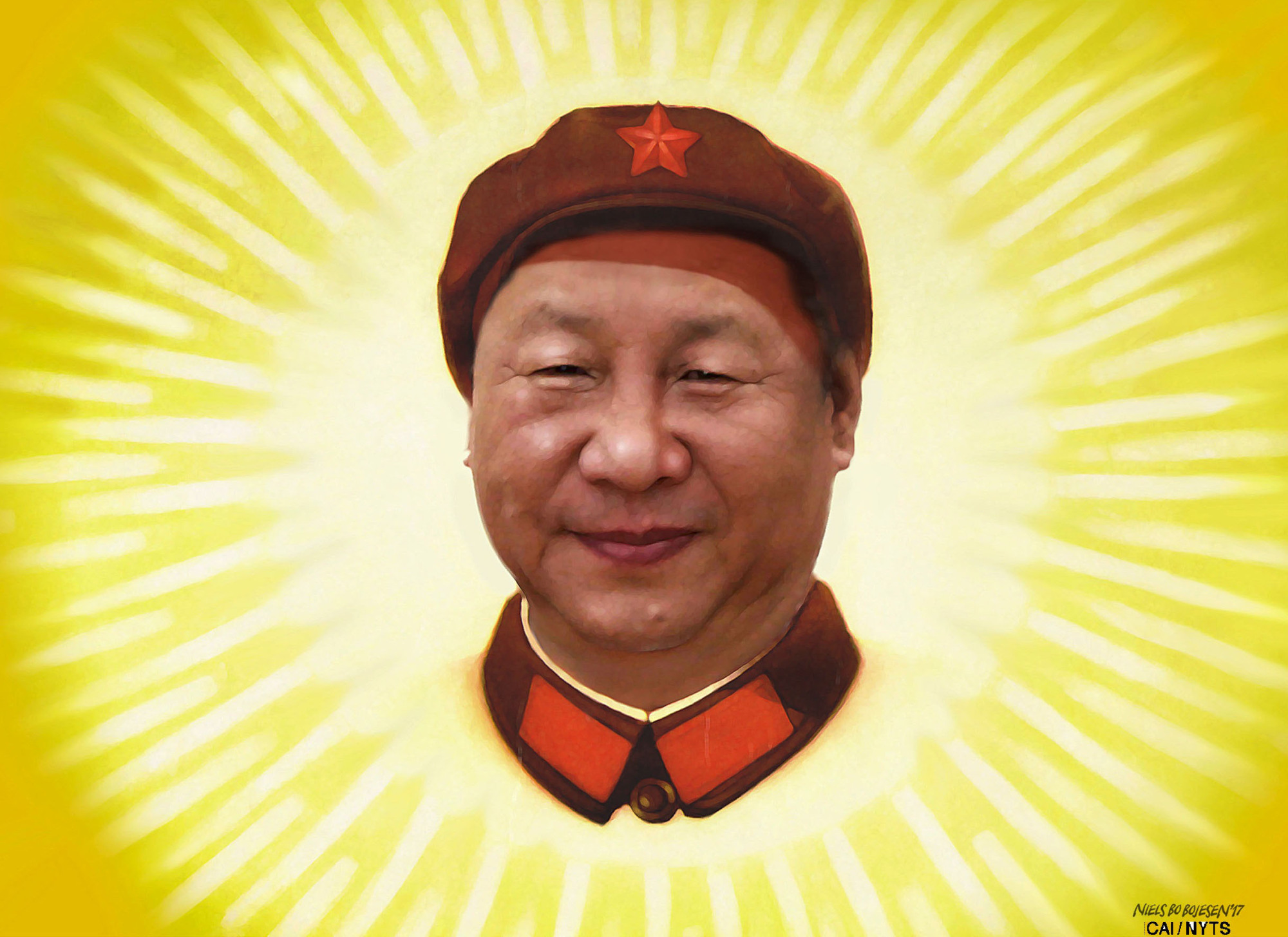Xi Jinping — president of China, general secretary of the Chinese Communist Party, chair of the Central Military Commission, chief of the military's Joint Operations Command Center, chairman of the committees on cybersecurity, economics and finance among others — has a new honor that will linger long after he leaves office.
China's Communist Party has decided to insert his view of the world — "Xi Jinping Thought for the New Era of Socialism With Chinese Special Characteristics" — into the constitution. He will be only the second leader after Mao Zedong to be so honored during his lifetime. Xi stands supreme. Yet that very accumulation of authority carries a large threat, both to his power and to his state.
Xi's central goals are to strengthen China's economy and military power and to lead a sometimes ferocious campaign against corruption, bolstering these aims with a steady determination to bring the news media back under the tightest control. Inserting both his thoughts and his name in the constitution will further delegitimize critical commentary and unflattering revelations by making anything that contradicts Xi's official line an attack on the constitution. Xi wants to render independent journalism impossible and choke off China's liveliest medium of criticism — social media. Blocking these arteries could be his largest mistake yet.

















With your current subscription plan you can comment on stories. However, before writing your first comment, please create a display name in the Profile section of your subscriber account page.